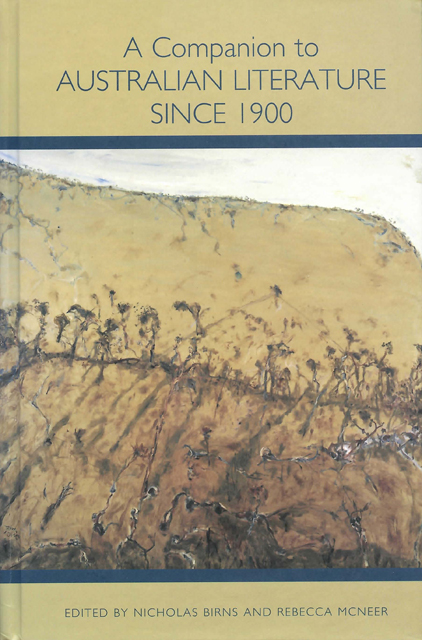Book contents
- Frontmatter
- Dedication
- Contents
- Chronology of Main Events in Australian History, 1901–2005
- Acknowledgments
- Note on the Cover Illustration and Artist
- Introduction
- Part 1 Identities
- Part 2 Writing Across Time
- Part 3 International Reputations
- Part 4 Writers and Regions
- Part 5 Beyond the Canon
- Notes on the Contributors
- Index
23 - Michael Wilding, Murray Bail, Rodney Hall, 345 and Frank Moorhouse
Published online by Cambridge University Press: 10 March 2023
- Frontmatter
- Dedication
- Contents
- Chronology of Main Events in Australian History, 1901–2005
- Acknowledgments
- Note on the Cover Illustration and Artist
- Introduction
- Part 1 Identities
- Part 2 Writing Across Time
- Part 3 International Reputations
- Part 4 Writers and Regions
- Part 5 Beyond the Canon
- Notes on the Contributors
- Index
Summary
The Academic and intellectual background of Michael Wilding (1942–), Murray Bail (1941–), Rodney Hall (1935–), and Frank Moorhouse (1938–) and their familiarity with contemporary tendencies in the development of literature and literary criticism, as well as with Australian literary and artistic tradition, have enabled these four authors to redirect the trajectory of Australian fiction since the 1960s.
In addition to his writing career, Michael Wilding has edited several journals, has lectured in English at the University of Sydney, and has written scholarly books on John Milton, British fiction, and classic Australian literature. Murray Bail worked as an art critic and journalist before becoming a full-time writer, Rodney Hall began his career as a poet and a broadcasting employee before turning full-time to fiction, and Frank Moorhouse was first a journalist and then worked full-time as a creative writer.
Michael Wilding
Of the four, Michael Wilding is probably the most prolific writer, especially in the production of novels and short stories. Although he was born in Britain, where he got a prestigious education and a B.A. degree from Oxford University, he later moved to Australia. The titles of his works, for example, The Short Story Embassy (1975), The Phallic Forest (1978), and Reading the Signs (1984), imply his interest in contemporary poststructuralist and postmodern theories of literature, in the referential function of language, and in the relationship between language and reality. The main themes of his fiction include cultural situations in Britain, Europe, Australia, and other countries; the bohemian worlds of the intellectual elites of Sydney and Melbourne; the boredom of suburban life and pseudointellectualism; mental and ecological crises; the influence of the American Beat Generation writers and American popular culture; sexuality; sexual deviation; and the nature of linguistic representation. His psychic dislocation from England, and to some extent from the United States, although he has lectured there, has enabled him to acquire the status of a playful, ironic, and detached observer of the cultural situation in these countries and and on these continents.
- Type
- Chapter
- Information
- A Companion to Australian Literature since 1900 , pp. 345 - 358Publisher: Boydell & BrewerPrint publication year: 2010

